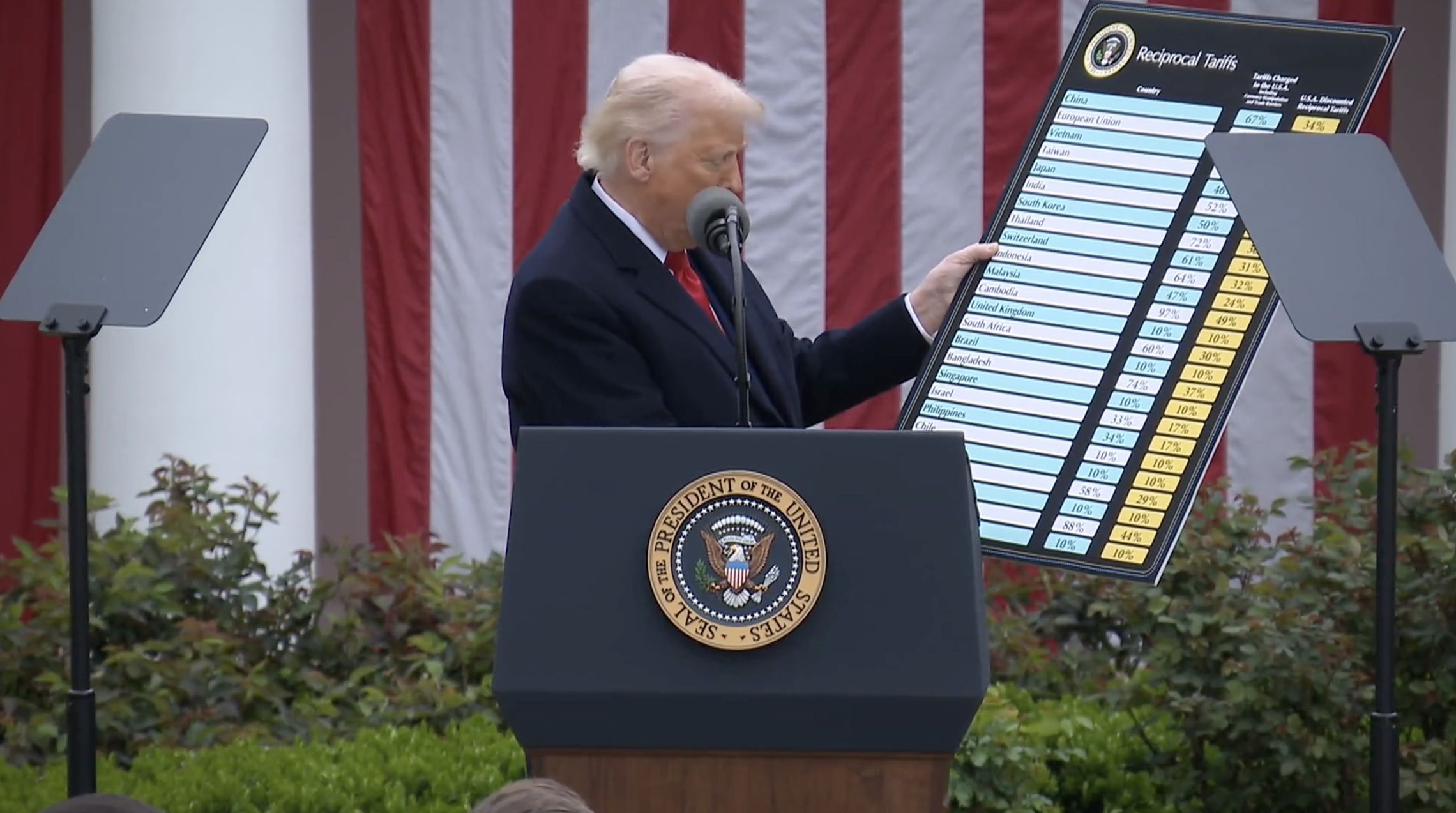The Philippines will only suffer "minimal" impact from the 17-percent reciprocal tariff imposed by the United States government on the products it is importing from the country, Malacañang said.

While Palace has yet to determine the industries that will be affected by the tariff, Palace Press Officer and Communications Undersecretary Claire Castro said its impact will not be that huge.
The Palace official even considered it as "good news", given that the tariff imposed by the Trump administration on the Philippines was among the lowest globally.
"Sa ngayon po ay wala pa po tayong detalye patungkol po kung anong mga industries ang maaaring maapektuhan pero siguro po itong 17 percent na ipapataw na tariff ay isa na rin pong magandang balita dahil mas marami po na bansa na mas napatawan nang mataas na mataas na tariff. At lumalabas nga po na parang tayo lamang po ay ang second lowest ‘no susunod po tayo sa Singapore (As of now, we have no details on what industries are possibly affected, but perhaps this 17 percent imposed tariff can be considered as a good news because many countries have higher tariff. And it appears that we are the second lowest, next to Singapore)," Castro said in a Palace briefing on Thursday, April 3.
"At ayon din po sa DTI, iyong impact po nito ay medyo hindi ganoon kalaki, very minimal po (And according to DTI, the impact will not be huge, it will only be very minimal)," Castro added.
At present, Castro said, the government is not planning on appealing to the US government to reduce the tariff, adding the Philippines is accepting the new development.
However, the government will still look into the possible impact the imposition of tariff may cause to the country.
Although Washington has been constantly reaffirming its strong ties to Manila, the Philippine government is not questioning the US' decision.
"Desisyon po kasi ng gobyerno ng US iyan. Kung mayroon po silang dapat na pangalagaan patungkol sa kanilang mga economic growth nila or sa kanilang mga ekonomiya, hindi po ito mapipigilan, iyan po ang kanilang magiging polisiya (That is the decision of the US government. If they have are protecting their economic growth or anything related to their economy, it is inevitable, that is their policy)," Castro said.
The Palace Press officer also said that the imposition of 17-percent reciprocal tariff to the Philippines by the US can both cause positive or negative impact.
"Puwede po kasing maging positibo ito, puwedeng maging negatibo ito lalo na kapag po tayo nagi-export. Pero kapag po nanatili ang ganitong klaseng polisiya, maaari pa rin din po tayong makakuha ng mga investors mula doon sa mga bansa na may pinapatawan ng malalaking tariff. So, maaari silang pumunta sa Pilipinas, dito sila magsagawa, mag-manufacture, dahil 17 percent lamang ang pinapataw sa atin. So, puwedeng negative, positive ito (This can be positive, it can also be negative, especially if we are exporting. But if this kind of policy persists, we could get investors from countries with bigger tariffs. They can come here in the Philippines, to manufacture, because the US only imposed a 17-percent tariff on us. So, it can be negative or positive)," Castro underscored.